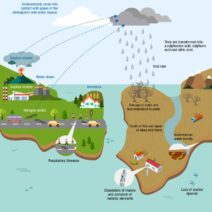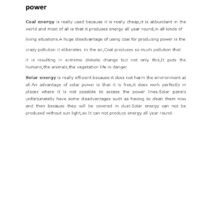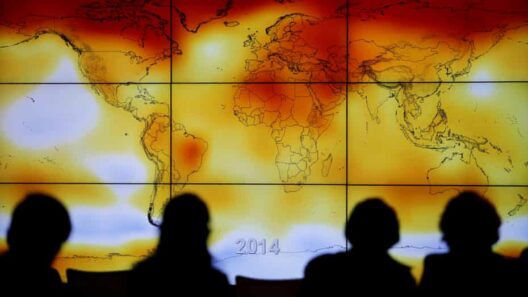The nexus between wealth and environmental stewardship is a perplexing conundrum that has gained unprecedented visibility in contemporary discourse. Notably, the ultra-wealthy—those who inhabit the rarefied atmosphere of billionaire status—are increasingly wielding their financial acumen and expansive resources in the fight against climate change. This phenomenon, often likened to an almighty tempest colliding with a fragile flower, demonstrates both power and vulnerability. The juxtaposition of immense fortune against the backdrop of an imperiled planet raises critical questions: Can wealth be a catalyst for sustainable change, or does it merely fortify the existing inequities within the environmental landscape?
Billionaires possess the financial wherewithal to transform ambitions into actions, a trait reminiscent of alchemists attempting to turn lead into gold. Their investments have taken on the mantle of knight-errantry, charged with the noble quest of preserving Earth’s biodiversity and combating the deleterious effects of climate change. These paragons of capital often approach the issue with a variety of strategies, delving into philanthropic ventures, investing in innovative technologies, and influencing policy at the highest levels. The sheer scale of their resources enables them to operate in realms that extend far beyond the reach of traditional activism.
Among the vanguard of this movement is Elon Musk, who, with his audacious ventures into electric vehicles through Tesla, epitomizes the confluence of technology and environmentalism. His vision extends beyond mere transportation; it encompasses a world powered by renewable energy. Tesla’s creation of battery storage systems exemplifies a pivotal breakthrough—storing energy gleaned from the sun and wind to mitigate reliance on fossil fuels. Musk is emblematic of a broader archetype: the billionaire innovator who harnesses capitalism to address environmental challenges.
Simultaneously, Jeff Bezos has embarked on a parallel path with the formation of the Bezos Earth Fund, a colossal financial vehicle aimed at mobilizing $10 billion to combat climate change. This initiative symbolizes an unprecedented philanthropic commitment. Bezos’s endeavor is akin to planting a massive acorn with hopes that it will grow into a resilient oak tree, offering shade and refuge for generations to come. This fund is not merely a financial conduit; it serves as a clarion call for collective action, urging other billionaires to harness their wealth for the greater good.
However, the engagement of billionaires in climate activism has engendered a multifaceted debate, rife with contention. Critics argue that reliance on wealth-as-salvation perpetuates systemic inequities and undermines grassroots movements. The metaphorical “knight on a white horse” can easily transition into a specter of saviorism, displacing the voices of marginalized communities who have sustained their stewardship of natural resources long before wealth was infused into the discourse. This raises an essential counterpoint: How can billionaires wield their influence without overshadowing the vital contributions of those most affected by climate change?
Noteworthy figures such as Mark Zuckerberg and Richard Branson have also entered the fray, championing causes that focus on ecological restoration and investment in sustainable technology. The ambition to regenerate forests and rehabilitate oceans embodies a poignant metaphor for renewal. Both immense financial clout and visionary reasoning are critical in these endeavors. However, while these initiatives can boast grand aspirations, one must scrutinize the effectiveness and accountability of such efforts. Are these billionaires genuinely investing in the long-term viability of the planet, or are they engaging in acts of corporate greenwashing masquerading as altruism?
Furthermore, the concept of “philanthrocapitalism” has emerged as a salient feature of this dialogue. This philosophy, which advocates for merging market-driven approaches with charitable intentions, underscores the complex reality faced by environmentalists today. Billionaires employing this model often seek to architect systemic change through innovative investments that prioritize sustainability. However, the potential pitfalls are substantial; the danger of commodifying environmental causes looms large, risking the dilution of both the urgency and authenticity of the quest for ecological balance.
In the realm of politics, the influence of billionaires cannot be overlooked. Many of them funnel their resources into lobbying efforts, shaping policies that govern environmental regulations. This duality of power—both financial and political—constitutes a powerful arsenal in the climate crisis battle. Yet, the potential for conflicts of interest raises ethical concerns. Will the policies we see enacted reflect a genuine commitment to sustainable practices, or will they serve the interests of a select few? This tension defines the complicated relationship between wealth, power, and environmental policy.
In an era where the consequences of climate change are becoming existential, the involvement of billionaires in ecological activism can be seen through a dual lens. They present the possibility of transformative change while simultaneously reflecting the profound inequalities that pervade society. The journey ahead requires an acute awareness of inclusivity and the need for collaborative efforts that prioritize the insights and experiences of marginalized communities.
Ultimately, the battle against climate change demands a multifaceted approach encompassing a convergence of wealth, innovation, and grassroots activism. Billionaires are undeniably part of the solution, but they should approach this responsibility with humility, cognizant of the interconnected nature of sociopolitical and ecological systems. For every initiative they launch, there is a call for collaboration—a need to integrate the wisdom of diverse voices into the tapestry of environmental reform.
In conclusion, as we navigate this intricate landscape, the narrative surrounding billionaires and climate change will continue to evolve. The potential for substantial contributions exists, with opportunistic pitfalls lurking at every turn. As the world hurtles toward an uncertain future, the role of the ultra-wealthy in combating climate change serves as both a beacon of hope and a reminder of the complexities embedded within our societal structures. In this delicate dance of responsibility and privilege, progress may lie not solely in financial muscle but also in the collective spirit of humanity united in purpose.








